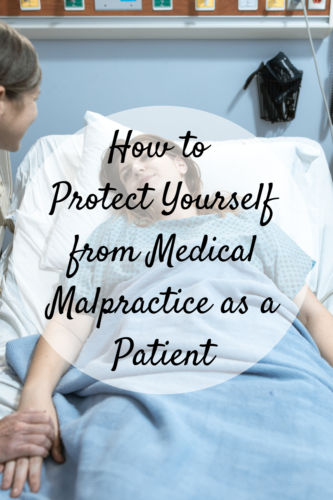
Fear of medical negligence might make finding one’s way through the maze of healthcare options even more difficult. As a patient, it is essential to educate yourself on how to protect your well-being and ensure the best possible care. Whether you’re a healthy adult, someone with preexisting conditions, or a pregnant woman, this article tries to provide complete guidance on how to protect yourself from medical negligence.
Be Proactive About Your Health
Research your condition and treatment options
Understanding your medical condition and the options for treatment is essential to protecting your health and well-being. You and your doctor can have more productive conversations about your health and treatment options if you spend the time to educate yourself about your condition and the advantages and disadvantages of each option.
Choose the right healthcare provider
Selecting a reliable and skilled medical professional is an important step in reducing the likelihood of malpractice. Ask for recommendations from friends, family, or online reviews to find a practitioner with a good reputation. Don’t hesitate to ask questions about a provider’s experience, education, and success rates in treating your specific condition.
Communication is Key
Speak up about your concerns
Being assertive and voicing your concerns when it comes to your healthcare is crucial. You should tell your doctor right away if you think you’ve been hurt or had an injury caused by a botched C-section, for instance. You should always feel comfortable asking questions and voicing concerns about your own health and well-being.
Keep a medical journal
Documenting your symptoms, medications, and any interactions with healthcare providers can be an invaluable resource. Keeping a detailed record helps ensure that nothing slips through the cracks and can be useful in case a malpractice claim arises.
Know Your Rights as a Patient
Understand the concept of informed consent
Informed consent is a fundamental patient right, which means that you have the right to be provided with all relevant information about your condition, treatment options, risks, benefits, and alternatives before any procedure or treatment. Ensure that your healthcare provider has thoroughly explained all aspects of your care and that you fully understand them.
Learn about your rights to access your medical records
Access to your medical records is a legal right in many countries, including the UK. Familiarise yourself with the process of requesting your records, as they can provide crucial information in case of a malpractice claim.
Trust Your Instincts
Get a second opinion
If something doesn’t feel right about your healthcare provider or their suggested course of treatment, don’t hesitate to seek a second opinion. An outsider’s viewpoint can provide new insights into your condition and treatment options.
Be vigilant for red flags
A healthcare professional who ignores your concerns, doesn’t answer your inquiries, or rushes you through appointments are all red flags that indicate it might be time to look elsewhere for treatment. Follow your instincts, and don’t disregard warning signs.
It may seem like an impossible endeavor, but if you take the necessary steps and have the right frame of mind, you can protect yourself from medical malpractice as a patient. Always take charge of your health, always communicate clearly, always know what your rights are, and always follow your gut. By doing so, you may protect yourself and your loved ones from the dangers of medical mistakes and get the finest care available.





Leave a Reply